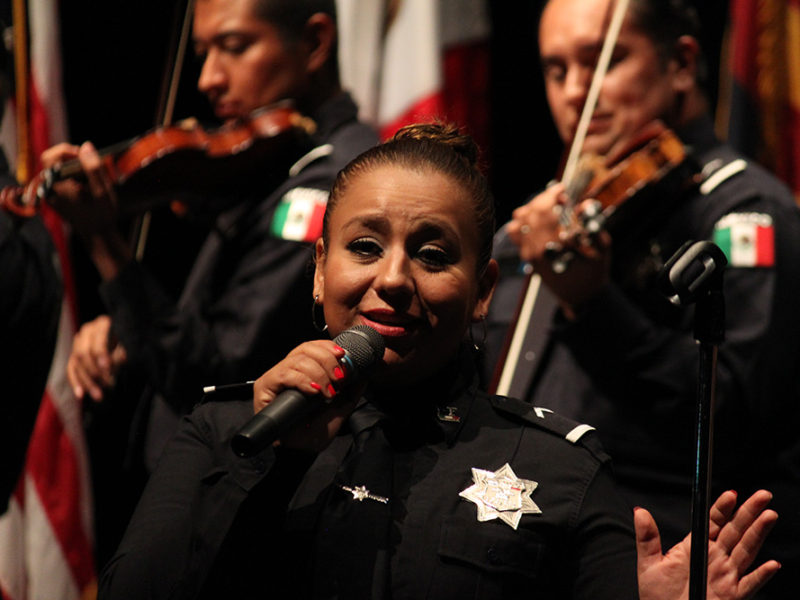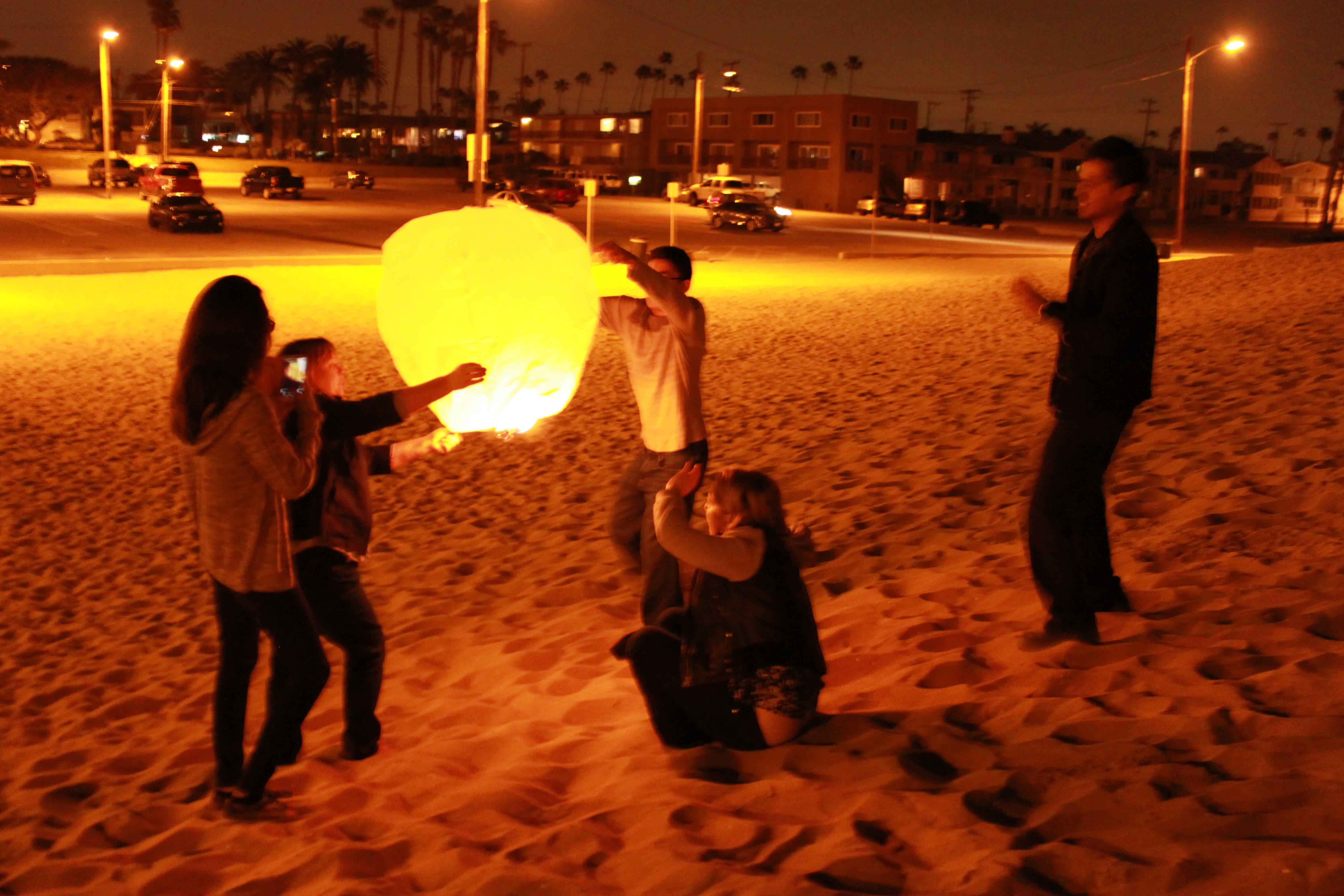If you want to check out the full article with more details, dialog and pictures, go here: Tucson Sentinel – Mexican musicians play to mend frayed cross-border ties
As spectators began to take seats, all sorts of uniformed personnel and law enforcement whizzed through the walkways between photographers and reporters. Lights dimmed down in the college auditorium, the United States Customs and Border Protection (CBP) Honor Guard marched in solemnly across the stage. They presented the many flags hanging from staffs which they posted on both sides of Mexico’s Federal Police woodwind symphony, who sat in arched rows spread across the stage at the base of the auditorium, a performing arts theatre which now sat about one hundred uniformed personnel. Mexico, the United States, the Department of Homeland Security, CBP, and the state of Arizona all had representative colors which stood hanging for the entirety of the concert. This colorful array of flags seemed a reminder of the occasion, which brought real connective space and action between groups that often find themselves divided, misinformed or just a bit unfamiliar with one another.

